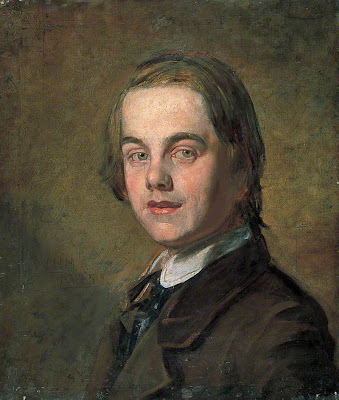Art influenced by the art and themes of the Pre Raphaelites with biographies, auctions and information on these artists.
Monday, April 30, 2012
World-class collection of Pre-Raphaelites displayed for first time in the United Kingdom
[Daniel Maclise, Scene – lawn before the Duke’s palace; Orlando about to engage with Charles, the Duke’s wrestler, 1854]
LONDON.- Works from one of the world’s finest private collections of Pre-Raphaelite and Victorian art are being exhibited in the UK for the first time in the unique setting of Leighton House Museum, one of the country’s most exceptional Victorian houses. Victorian Visions: Pre-Raphaelite and Nineteenth-Century Art from the John Schaeffer Collection runs from Thursday 26 April - Sunday 23 September 2012.
More Information: http://artdaily.org/
Copyright © artdaily.org
Sunday, April 29, 2012
Saturday, April 28, 2012
Friday, April 27, 2012
Thursday, April 26, 2012
Love and Death: Victorian Paintings from Tate
Love and Death: Victorian Paintings from Tate
Location: Birmingham Museum
8th September 2012 - 13th January 2013
This autumn eleven of the most spectacular paintings in the national collection come to Birmingham Museum & Art Gallery.
This exclusive exhibition will display iconic paintings from Tate alongside related works from Birmingham ’s own collection. The centrepiece will be John William Waterhouse’s ‘The Lady of Shalott’ (1888), one of Tate’s most famous and popular works, which rarely travels outside London . It will be joined by two other paintings by Waterhouse: a rare opportunity to see this artist inBirmingham .
The exhibition also features classical paintings by the great 19th-century artists Frederic Leighton and Lawrence Alma-Tadema, revealing the Victorian fascination with re-imagining life in Greece and Rome , from lovers’ flirtations to dramatic martyrdom.
Exploring themes of love, beauty, tragedy and death, these powerful and moving paintings will create a spectacular display.
Gallery 12 & 13. Free admission.
Wednesday, April 25, 2012
Tuesday, April 24, 2012
Rossetti's studio
One face looks out from all his canvases,
One selfsame figure sits or walks or leans:
We found her hidden just behind those screens,
That mirror gave back all her loveliness.
A queen in opal or in ruby dress,
A nameless girl in freshest summer-greens,
A saint, an angel — every canvas means
The same one meaning, neither more or less.
He feeds upon her face by day and night,
And she with true kind eyes looks back on him,
Fair as the moon and joyful as the light:
Not wan with waiting, not with sorrow dim;
Not as she is, but was when hope shone bright;
Not as she is, but as she fills his dream.
“In an Artist’s Studio” by Christina Rossetti (1830-1894)
Image: Detail of the interior of Gabriel Dante Rossetti’s studio at Cheyne Walk, Chelsea. Drawing by H. Treffry Dunn (1882?) taken from H. C. Marillier, Dante Gabriel Rossetti: An Illustrated Memorial of His Art and Life (1899)
Monday, April 23, 2012
Sunday, April 22, 2012
Saturday, April 21, 2012
The Merciful Knight - Edward Burne-Jones
This is arguably Burne-Jones's most important early work. In the memorial biography of her husband, Georgiana Burne-Jones stated that it seemed: 'to sum up and seal the ten years that had passed since Edward first went to Oxford'. In terms of design, technique and expression, the picture demonstrates that Burne-Jones had reached a new and more personal style. It remained Burne-Jones's own favourite among his early works and in 1894 he tried to borrow it to make a large oil version.The subject is taken from the life of the Florentine knight St John Gualberto, founder of the Valombrosan Order in 1039, who was miraculously embraced by a wooden figure of Christ while praying at a wayside shrine after forgiving the murder of his kinsman. This obscure legend was unlikely to be familiar to a wide audience and this further enhanced its mystical and intensely poetic quality. Incidentally, the marigolds in the foreground came from the 'town garden' in Russell Square, close to Burne-Jones's house opposite the British Museum.
Watercolour with bodycolour on paper.
Subscribe to:
Posts (Atom)
















































